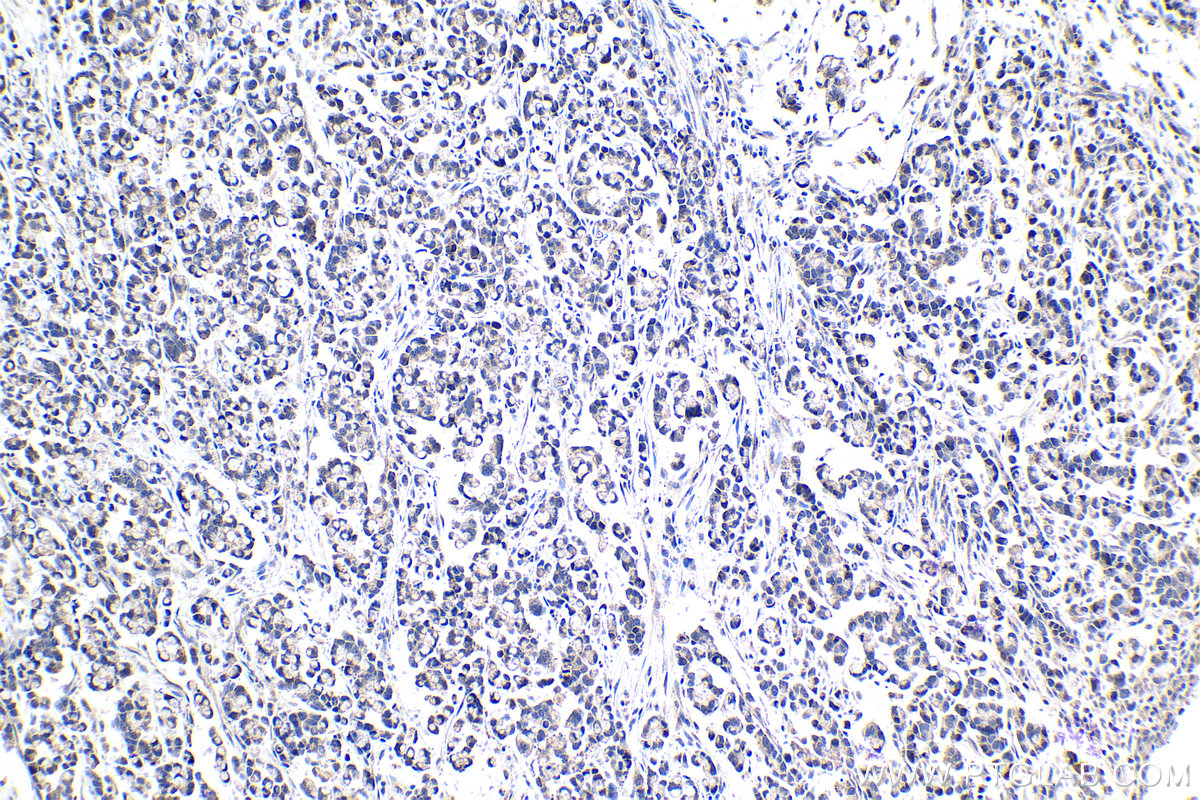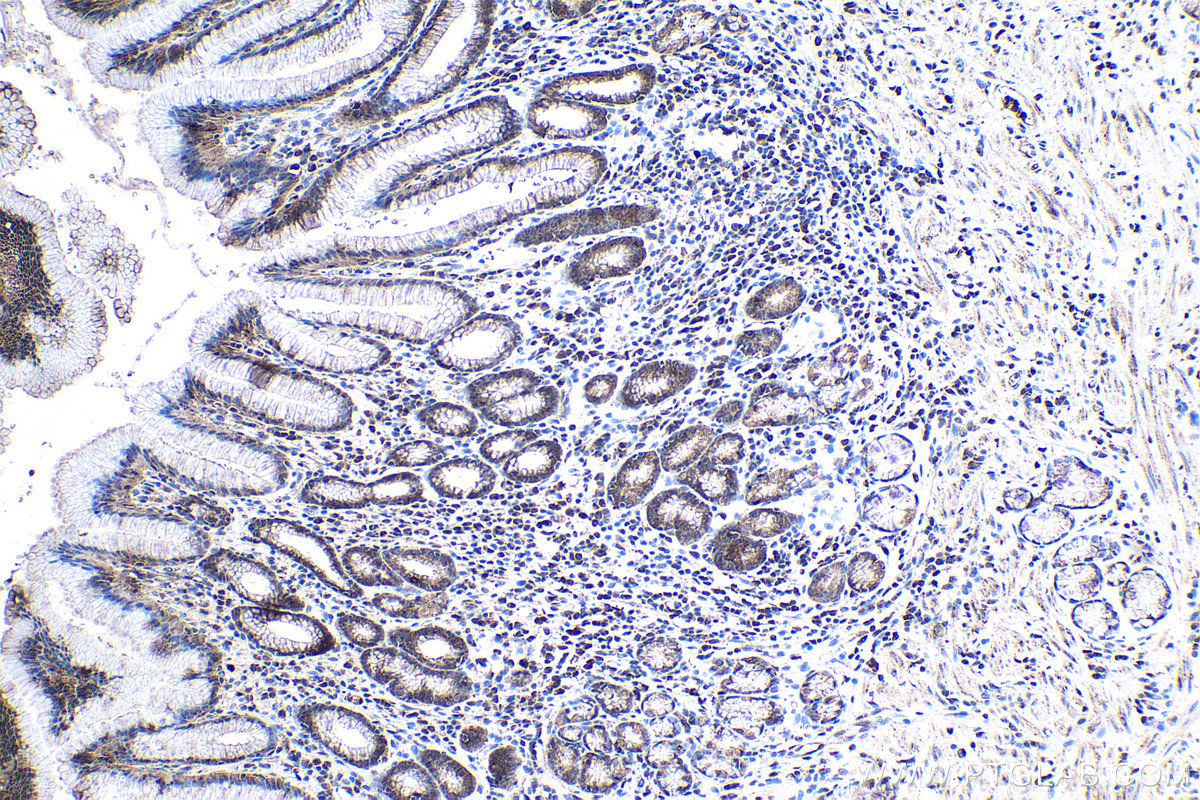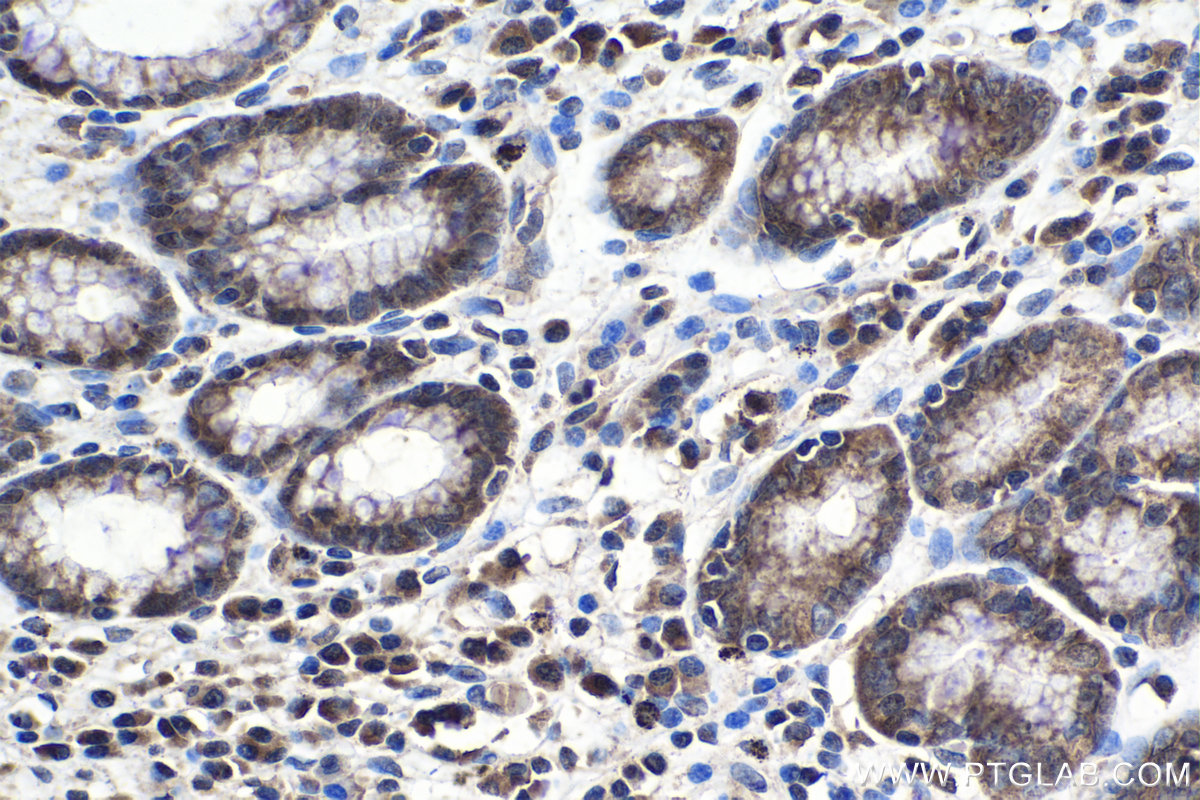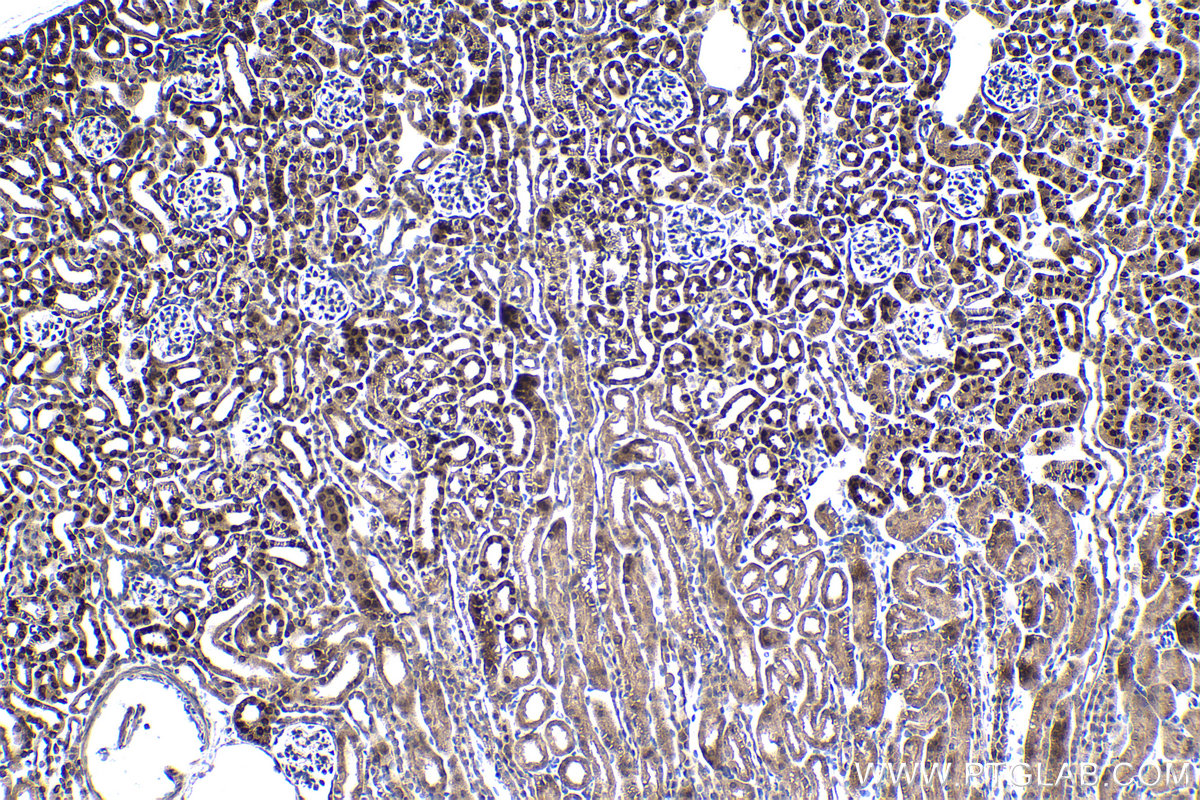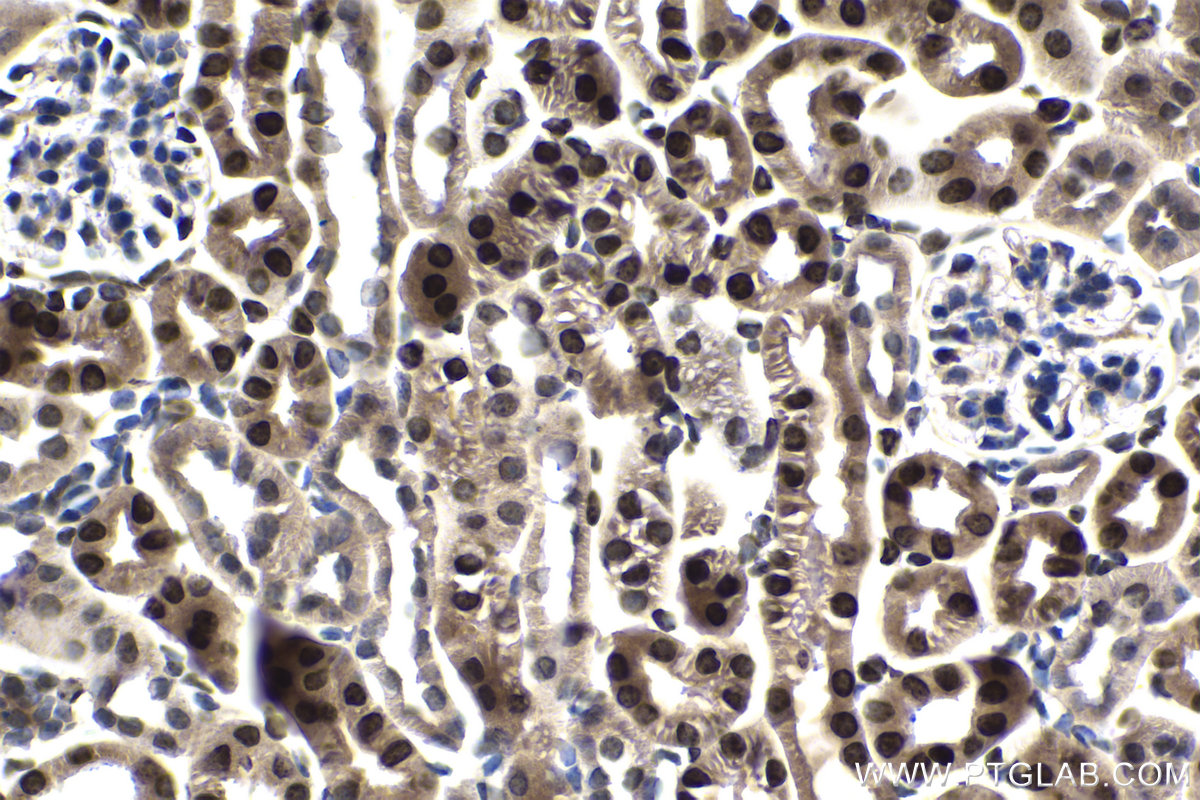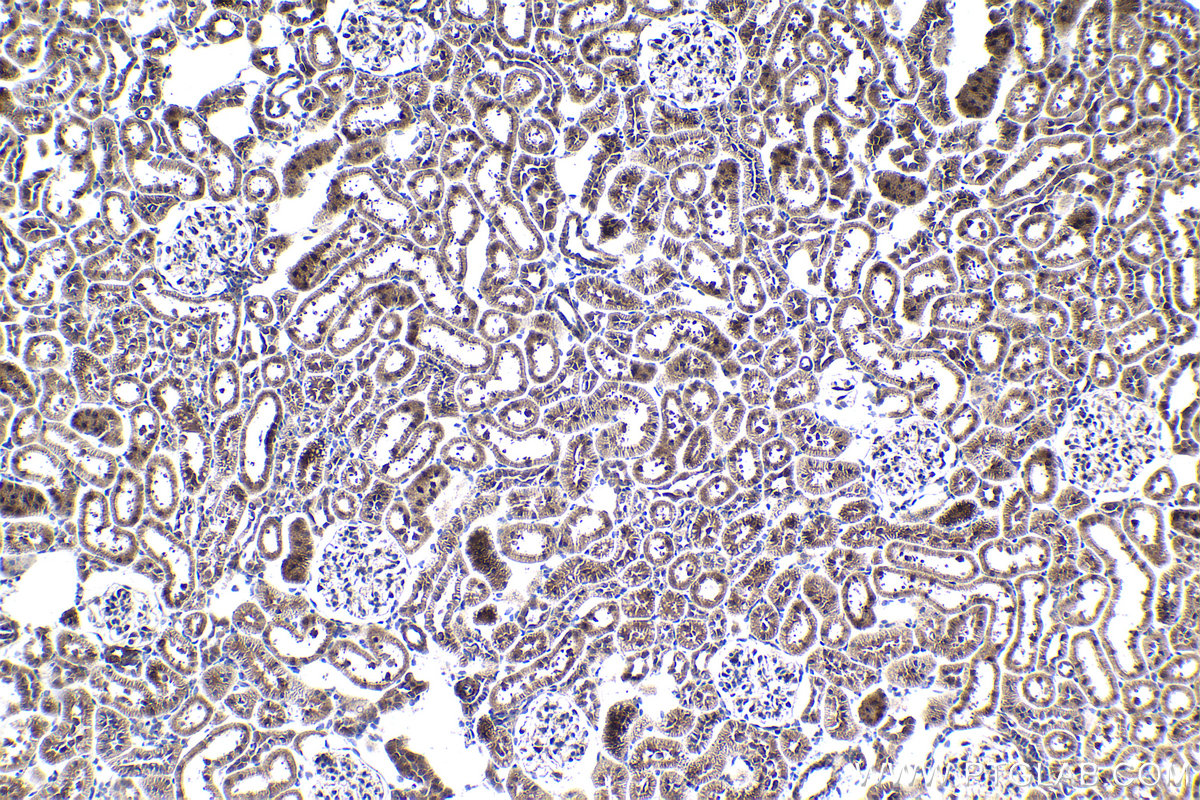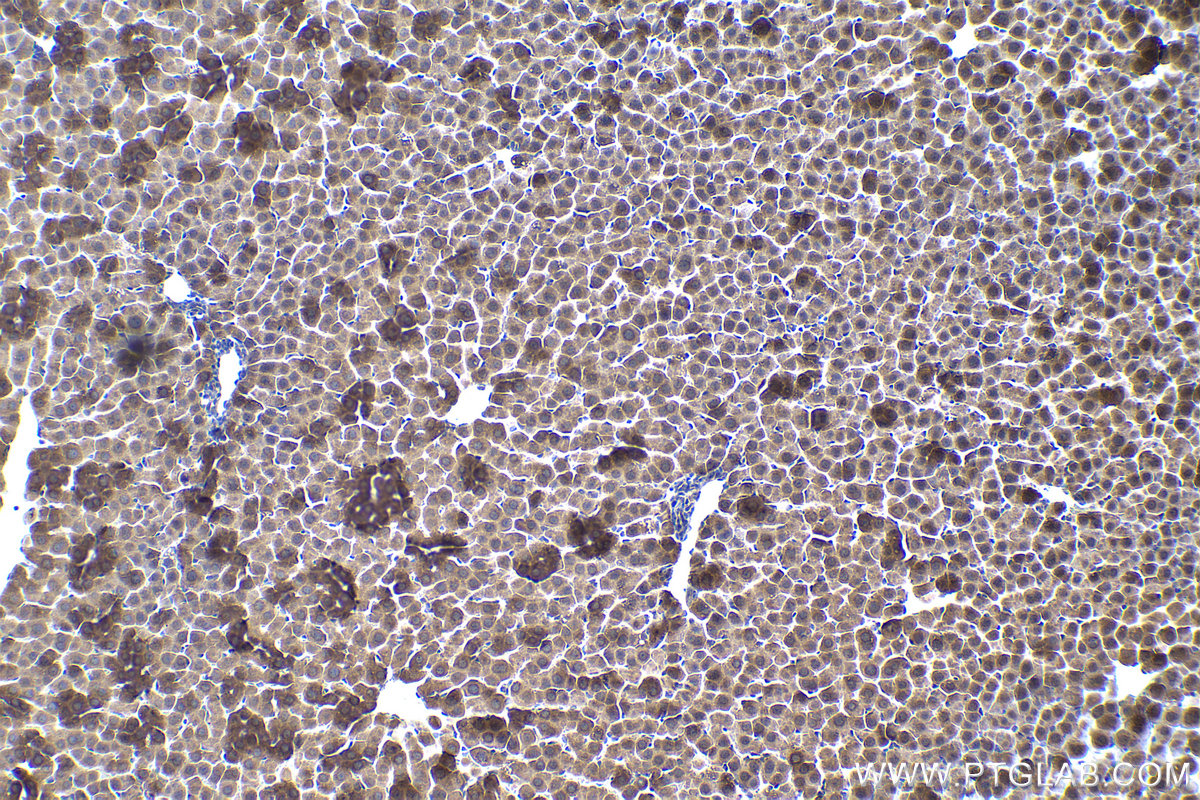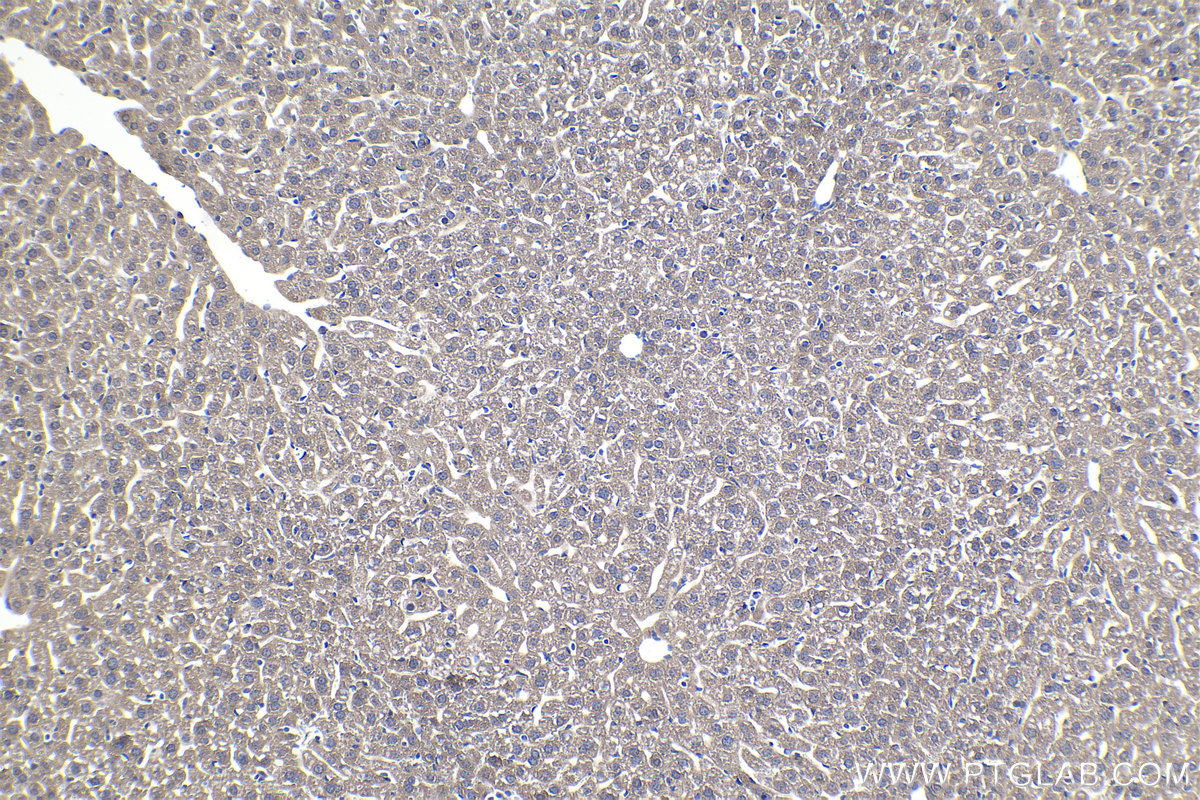验证数据展示
经过测试的应用
| Positive IHC detected in | human stomach cancer tissue, mouse liver tissue, human colon cancer tissue, mouse kidney tissue, rat kidney tissue, rat liver tissue Note: suggested antigen retrieval with TE buffer pH 9.0; (*) Alternatively, antigen retrieval may be performed with citrate buffer pH 6.0 |
推荐稀释比
| 应用 | 推荐稀释比 |
|---|---|
| Immunohistochemistry (IHC) | IHC : 1:250-1:1000 |
| It is recommended that this reagent should be titrated in each testing system to obtain optimal results. | |
| Sample-dependent, Check data in validation data gallery. | |
产品信息
13793-1-AP targets ELP2 in IHC, ELISA applications and shows reactivity with human, mouse, rat samples.
| 经测试应用 | IHC, ELISA Application Description |
| 经测试反应性 | human, mouse, rat |
| 免疫原 |
CatNo: Ag4581 Product name: Recombinant human ELP2 protein Source: e coli.-derived, PGEX-4T Tag: GST Domain: 406-756 aa of BC032553 Sequence: AITGQSLNHVLCNQDSDLPEGATVPALGLSNKAVFQGDIASQPSDEEELLTSTGFEYQQVAFQPSILTEPPTEDHLLQNTLWPEVQKLYGHGYEIFCVTCNSSKTLLASACKAAKKEHAAIILWNTTSWKQVQNLVFHSLTVTQMAFSPNEKFLLAVSRDRTWSLWKKQDTISPEFEPVFSLFAFTNKITSVHSRIIWSCDWSPDSKYFFTGSRDKKVVVWGECDSTDDCIEHNIGPCSSVLDVGGAVTAVSVCPVLHPSQRYVVAVGLECGKICLYTWKKTDQVPEINDWTHCVETSQSQSHTLAIRKLCWKNCSGKTEQKEAEGAEWLHFASCGEDHTVKIHRVNKCAL 种属同源性预测 |
| 宿主/亚型 | Rabbit / IgG |
| 抗体类别 | Polyclonal |
| 产品类型 | Antibody |
| 全称 | elongation protein 2 homolog (S. cerevisiae) |
| 别名 | Elongator complex protein 2, ELP2, SHINC 2, STAT3 interacting protein 1, STATIP1, StIP, StIP1 |
| 计算分子量 | 826 aa, 93 kDa |
| GenBank蛋白编号 | BC032553 |
| 基因名称 | ELP2 |
| Gene ID (NCBI) | 55250 |
| RRID | AB_3085423 |
| 偶联类型 | Unconjugated |
| 形式 | Liquid |
| 纯化方式 | Antigen affinity purification |
| UNIPROT ID | Q6IA86 |
| 储存缓冲液 | PBS with 0.02% sodium azide and 50% glycerol, pH 7.3. |
| 储存条件 | Store at -20°C. Stable for one year after shipment. Aliquoting is unnecessary for -20oC storage. |
背景介绍
ELP2 is a component of the elongator complex which is required for multiple tRNA modifications. The elongator complex catalyzes the formation of carboxymethyluridine in the wobble base at position 34 in tRNAs.
实验方案
| Product Specific Protocols | |
|---|---|
| IHC protocol for ELP2 antibody 13793-1-AP | Download protocol |
| Standard Protocols | |
|---|---|
| Click here to view our Standard Protocols |

